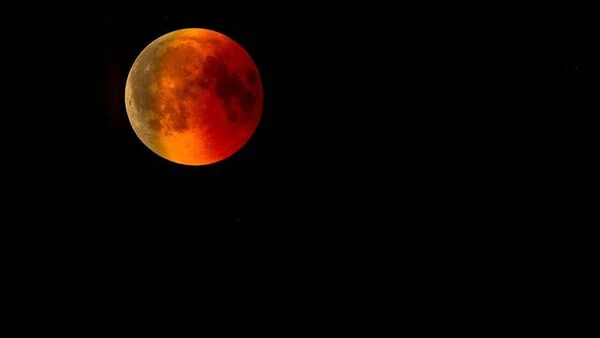Solar Eclipse Today: Will The US Get A Glimpse? Here's What To Know
A solar eclipse happens when the moon moves between the sun and the Earth, blocking sunlight. In a total solar eclipse, the sun, moon, and Earth line up perfectly, turning day into night for a short time. In a partial solar eclipse, the alignment is not exact, so the moon only covers part of the sun.
According to USA Today, during the upcoming partial eclipse the sun will appear“like a crescent, like someone took a bite out of it”. People in the right regions will briefly see this unusual“bitten Sun” before the moon passes and the sun looks normal again.
Also read | Solar Eclipse 2025: Date, time and visibility. Will India witness the last 'surya grahan' of the year?
When will the eclipse occur?The partial eclipse will begin at 1:29 pm ET on Sunday, 21 September, with the maximum eclipse at 3:41 pm ET. Since it will already be Monday in the Southern Hemisphere, timings will vary by location. Viewers are advised to check schedules on trusted sites such as Time and Date.
Read | When is Mahalaya 2025? Amavasya date, time, end of Pitru Paksha, Durga Puja, Mahishasura Mardini and more
Can it be seen from the US?No. The eclipse will not be visible from the United States. For most Americans, the only way to experience it will be through live streams, videos, and photographs shared from regions where it can be seen. Around 16 million people - just 0.2 per cent of the world's population - will be able to view it directly.
Also read | Partial solar eclipse of September 21-22: What to expect, confirmed timings, locations, expert advice and more
How can it be watched safely?Experts warn: never look directly at the sun without proper eye protection. Special eclipse glasses, solar viewers, or official live streams should be used. These precautions are vital to prevent serious eye damage.
Legal Disclaimer:
MENAFN provides the
information “as is” without warranty of any kind. We do not accept
any responsibility or liability for the accuracy, content, images,
videos, licenses, completeness, legality, or reliability of the information
contained in this article. If you have any complaints or copyright
issues related to this article, kindly contact the provider above.
Most popular stories
Market Research

- Space And Time Integrates USDC Payments For ZK Coprocessing To Expand Access To Verifiable Onchain Compute
- Cartesian Launches First Outsourced Middle-Back-Office Offering For Digital Asset Funds
- Primexbt Launches Empowering Traders To Succeed Campaign, Leading A New Era Of Trading
- Forex Expo Dubai 2025 Returns October 67 With Exclusive Prize Draw Including Jetour X70 FL
- Utila Triples Valuation In Six Months As Stablecoin Infrastructure Demand Triggers $22M Extension Round
- Bitmex Launches Alpha Showdown Trading Competition Featuring 3 BTC Prize Pool And Additional Rewards





















Comments
No comment